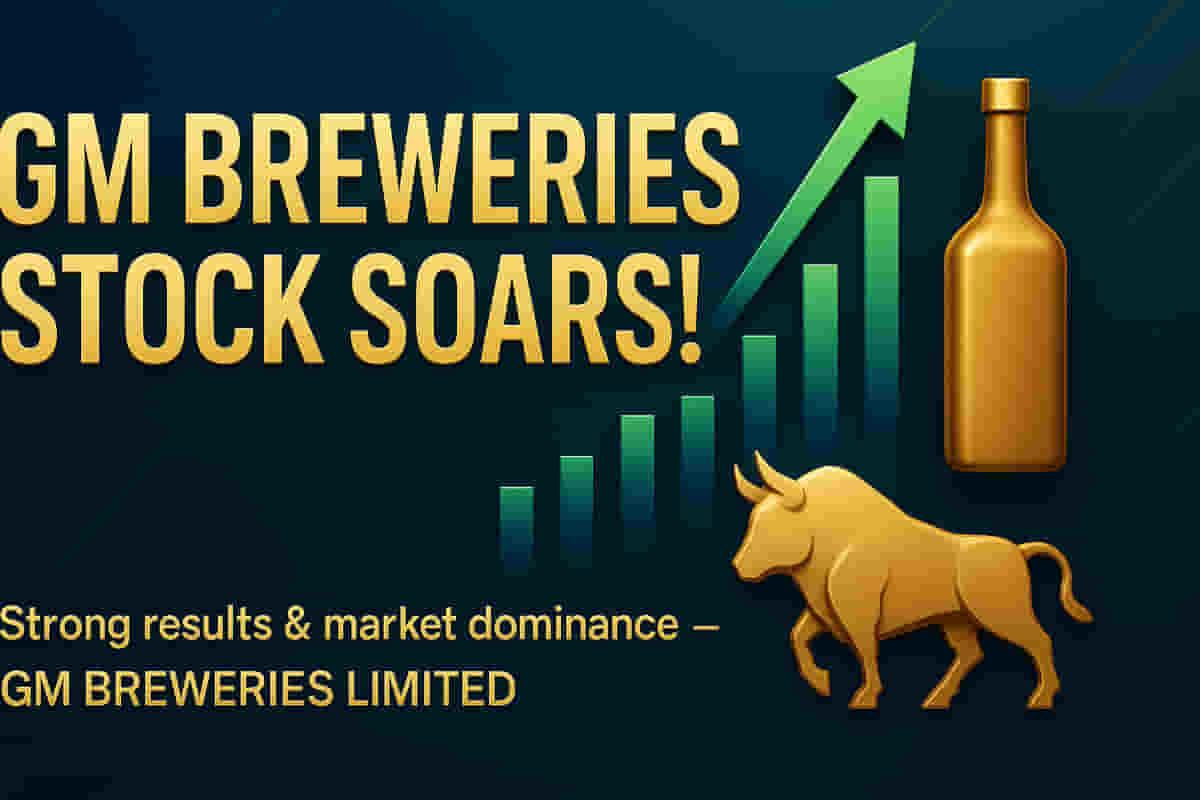GM Breweries Stock Surges 77.5% in a Month Driven by Strong Quarterly Results and Market Dominance
Consumer Products
|
30th October 2025, 12:31 AM

▶
Stocks Mentioned :
Short Description :
Detailed Coverage :
GM Breweries Limited's stock has experienced a significant uplift, soaring by 77.5% in the past month, much to the delight of investors. This performance follows a period of nearly two and a half years where the stock languished after the post-COVID rally concluded in October 2021.
Pros: #1 Decent Fundamentals: The company has showcased steady growth, with revenue and net profit growing at healthy Compound Annual Growth Rates (CAGRs) over the last three and five years. Notably, GM Breweries maintains a strong balance sheet with zero debt, achieving impressive Return on Equity (ROE) and Return on Capital Employed (ROCE) figures. Operating cash flows are robust, debtor days are well-managed, and the company consistently returns cash to shareholders through dividends. Promoter holding remains strong at nearly the maximum regulatory limit, with a marginal increase in stake by Foreign Portfolio Investors in the recent quarter.
#2 Good Industry Position: GM Breweries is the largest manufacturer of country liquor in Maharashtra, holding a monopoly in key districts like Mumbai, Thane, and Palghar. This segment benefits from consistent demand due to its affordability. The company operates a modern, fully automatic plant and owns well-known brands, positioning it well for growth in tier 2 and tier 3 cities.
Cons: #1 Regulations and Taxes: The alcohol industry is highly regulated, with both state and central governments imposing strict controls. While this can limit competition for established players, it also means companies are at the mercy of policy changes. Any adverse increase in excise duty or taxes on the company's products could negatively impact revenues and profitability.
Impact: This news indicates strong investor confidence in GM Breweries, driven by its financial performance and market position. The stock's sharp rise suggests positive sentiment, but future performance will depend on the company's ability to continue growing its business while navigating the unpredictable regulatory landscape of the alcohol sector. The potential for further gains exists if the company sustains its growth trajectory and manages regulatory challenges effectively. Impact rating: 8/10 for the specific stock.
Difficult Terms: CAGR (Compounded Annual Growth Rate): The average annual growth rate of an investment over a specified period longer than one year. Return on Equity (ROE): A measure of financial performance calculated by dividing net income by shareholders' equity. It shows how well a company generates profits from shareholder investments. Return on Capital Employed (ROCE): A profitability ratio that measures how efficiently a company is using its capital to generate profits. It is calculated by dividing earnings before interest and taxes (EBIT) by capital employed. Zero Debt: Indicates that the company has no outstanding financial liabilities or loans. Operating Cash Flow: The cash generated from a company's normal business operations, excluding financing and investing activities. Debtor Days: A financial ratio that indicates the average number of days it takes for a company to collect payment from its customers (debtors). Promoter Holding: The percentage of shares in a company held by its founders, promoters, or the core management group. Foreign Portfolio Investors (FPIs): Institutional investors, such as mutual funds or hedge funds, that invest in securities of a country other than their own. Country Liquor (CL): A category of alcoholic beverages, often locally produced and affordable, popular in rural and semi-urban areas of India. Indian Made Foreign Liquor (IMFL): Alcoholic beverages manufactured in India but made in the style of foreign liquors like whisky, vodka, rum, etc. Excise Duty: A tax levied on the production or sale of specific goods, such as alcohol or tobacco, often collected by the central or state government.